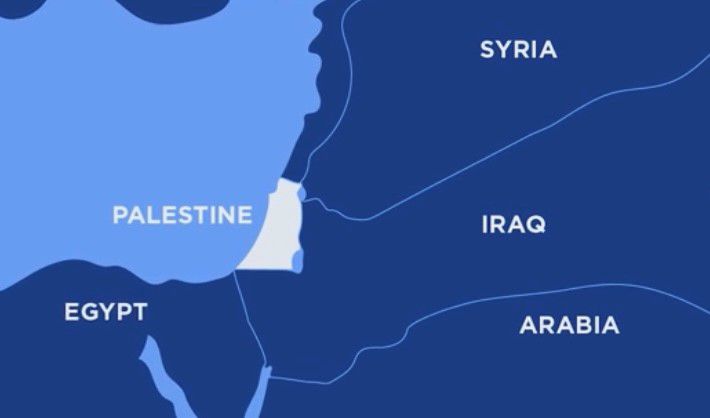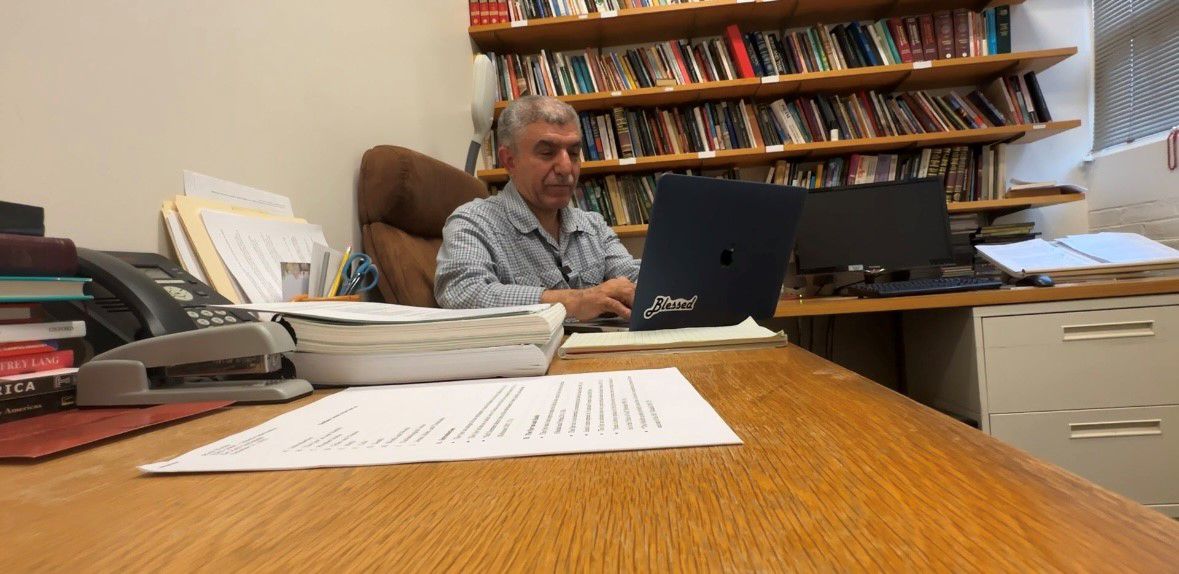CLEVELAND — The Israel-Hamas war continues to rage on in the Middle East, but this is not a recent conflict. The fight over the land has existed since before Israel was declared a state.
“Especially at the end of the 19th century and the 1880s, many Jews and many non-Jews really begin to see that Jews do not have a place in the new national consciousness of Europe," said Noah Bickart, Mandel professor of Jewish studies at John Carroll University.
Bickart said this is when the political ideology known as Zionism came to be.
“And Zionism is essentially Jewish nationalism, the notion that Jews — like the Greeks, the French and the Germans — are a people with a culture, with a language and a land," he said.
In the 1880s, he said, there was a widespread movement of Jewish people from Europe to what was then known as the Ottoman Empire.
“Initially, there is not a great deal of tension between the Palestinian Arabs who live there and these new Jewish immigrants," Bickart said. "As immigration increases, there does seem to be some tension between these groups.”
Zeki Saritoprak, professor of Islamic studies at John Carroll University, said the land is considered holy to both Muslim and Jewish people.
"It's considered a holy place for Jewish people and a holy place for Muslims to a certain extent," he said.
From the 1500s until World War I, the Ottoman Empire controlled the land then known as Palestine.

“Where the French and the British essentially carve up the Middle East, the remnants of of the Ottoman Empire, into the sort of national borders we see today and give those country names like Syria, and Lebanon and Iraq and Jordan and, of course, Palestine," Bickart said.
Jews in Europe had endured centuries of antisemitism even before World War II. When the Nazis killed six million Jews and displaced huge populations, hundreds of thousands of Holocaust survivors refused to return to their homes out of fear, according to the Holocaust Memorial Museum.
Many wanted to move to what was known as Mandatory Palestine in order to create a Jewish homeland.
“Eventually in the late 40s, tensions between the Jews and the Arabs in Palestine become so untenable that the British turn to the new United Nations for a solution," Bickart said.
In November 1947, the U.N. voted to split Palestine into two states, one a Jewish state and the other an Arab state.
“Initially that was intention, to have a state for Palestinians and a state of Israel was established, and somehow the Palestinian situation didn’t come to a solution," Saritoprak said.

War broke out in 1948, leaving Israel in control of the area the United Nations set aside for a Jewish state and also more than half of the area designated for an Arab state, creating a refugee crisis as Palestinians fled.
"At this point, Jordan invades and captures what is now called the West Bank, that territory which is west of the Jordan River, and Egypt takes over the slot of land called the Gaza Strip, and this is the state at 1948," Bickart said. "Israel is declared a state. There is no state of Palestine. Jordanians control the West Bank. The Egyptians control the Gaza Strip."
Later wars, including the 1967 Six-Day War and the Yom Kippur War in 1973, led to Israel occupying even more land, creating even more tension. Then, in 1993 and 1995, the Oslo Accords between Israel and the Palestine Liberation Organization created renewed hope for a two-state solution.
In 2005, Israel fully withdrew from Gaza and turned it over to the Palestinian Authority while retaining control of most access to the area by land, air and sea.
In 2007, Hamas won control of Gaza. There have not been any elections in Gaza since, and Hamas has been designated a terrorist group by the U.S. State Department since 1997.
“With the help of Egypt — again, now an ally of the Israelis — completely blocks and cuts off all ability for the Gazans to get food and all kind of economic activity in and out of the Gaza Strip," Bickart said.
Now, the Israelis and Hamas are at war. The violence of Hamas' invasion of Israel and the growing Palestinian anger over Israel's response leave many wondering what the current conflict means for the hope of a two-state solution.
"And that's what I am hopeful, (that) one day, they will come together," Saritoprak said. "These Palestinians and Jews will come together and then will work together."


